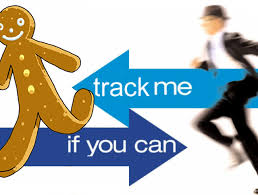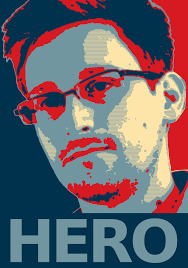Before getting up this morning I surfed the internet on my smartphone, roaming from Facebook to Twitter and from Twitter to the Huffington Post app (a ritual I partake in every morning). After reading several banal articles, most of which focused on bogus political manifestos and the weekend’s reaction to Manchester United FC defeating their English rivals Liverpool, I stumbled across a composition that reminded me of a research seminar I attended last October. The article told of how Taylor Swift reportedly purchased some adult web domain names to prevent porn sites misusing her name in the future to sell or promote their sexually explicit content. The reason the singer/actress felt so compelled to purchase a piece of the internet is because, in June 2015, the Internet Corporation for Assigned Names and Numbers (ICANN) will release domain names ending in ‘.porn’ and ‘.adult’. Now, to Swift’s relief, no one can use the domain names ‘TaylorSwift.porn’ and ‘TaylorSwift.adult’ in the future. The article further tells of how Microsoft followed suit, purchasing ‘Office.porn’ and ‘Office.adult’ before anyone else could acquire those particular domains. The anxiety about such perverse usages of the World Wide Web is now characteristic of contemporary society.
The seminar that was fortuitously brought to my attention through my morning readings was Dr Orla Murphy’s ‘Paradigmatic Shifts: Narrative and Semantics Now’. I had taken pages of notes during her talk that needed revising so as to enable me to write this blog some five months after the seminar took place. Particular words and sentences stood out and I will attempt to write both from these notes and my memories of the seminar. To paraphrase Dr Murphy loosely, we are all cyborgs: that is, we (humanity) are digitally connected beings. Although a choice ten years ago, this digital connectivity is almost an indispensable capacity of modern man. On hearing the word cyborg I automatically think of Robocop or the movie I Robot, a sci-fi thriller set in the year 2035 where highly intelligent robots fill public service positions throughout the world. But, of course, why compare myself to a robot when I am already hypothetically a cyborg whose daily life centres on technological advances such as the internet? In the preceding sentence, I deliberately chose to use the word ‘centred’ instead of ‘advanced’ for the reason that the internet’s life-enhancing qualities are persistently exploited for malevolent purposes. Mentioned in the seminar was the poignant actuality that people now live a binary existence that runs parallel with each other. Not only do we exist in the real world but we now have a place in a virtual one, which often takes precedence over the former. In modern society, most people live in the virtual world and usually inhabit two houses – that of Facebook and Twitter. Apparently happy places, these dwellings harvest more lies than the Obama administration, but remain the primary method of communication between individuals in the twenty-first century. Facebook is to communication as McDonalds is to food. Although fast, cheap and convenient, it also is terribly unhealthy and innutritious. I would be a fool and a hypocrite were I to say Facebook does not have its uses but its shortcomings eclipse many of its benefits. Yes, Facebook enables one to communicate with a brother, father or friend half way across the world, but what should be measured is the quality of such communication; more often than not, it is poor and usually comprises of hitting the ‘like’ button under-neath a picture or commenting on an exceedingly exaggerated post (God forbid anyone thinks we are anything other than perpetually happy). We live in a virtual reality that is becoming much more important than our real lives and, subsequently, we are lonelier than we were before the invention of the internet.
 Access to information is considered a basic right and is one of the many liberties that are exhibited in the United Nations charter of Human Rights. However, what about multinational corporations extracting peoples’ personal information in order to widen their profit margins? Again to paraphrase Orla Murphy, we are being traced, tracked, and traded for profit. Imagine you are walking home from a night’s partying and you suddenly find that someone is watching you because they want all of your valuables – watch, mobile-phone, rings, money and credit cards. You would either run to safety or confront your stalker and call the police. So what are you to do when you open your browser and go to Facebook.com, only to find your personal information is being collected without your consent via cookies and tracking databases? The panoply of corporations harvesting your personal information make sure that every step you make along your internet trek is monetised. It is important to remember that often these corporations create or help construct your digital profile. Although they often dispense with names, you become a marketable number and your anonymity is cast to one side.
Access to information is considered a basic right and is one of the many liberties that are exhibited in the United Nations charter of Human Rights. However, what about multinational corporations extracting peoples’ personal information in order to widen their profit margins? Again to paraphrase Orla Murphy, we are being traced, tracked, and traded for profit. Imagine you are walking home from a night’s partying and you suddenly find that someone is watching you because they want all of your valuables – watch, mobile-phone, rings, money and credit cards. You would either run to safety or confront your stalker and call the police. So what are you to do when you open your browser and go to Facebook.com, only to find your personal information is being collected without your consent via cookies and tracking databases? The panoply of corporations harvesting your personal information make sure that every step you make along your internet trek is monetised. It is important to remember that often these corporations create or help construct your digital profile. Although they often dispense with names, you become a marketable number and your anonymity is cast to one side. 
Typically, the internet was a space where we could express ourselves freely but such is the paradox of freedom that our expressions are monitored and surreptitiously confined to ticking boxes. The internet’s infinite capacity for storing information has been a source of consternation among people. These trepidations were heightened after Edward Snowden, a computer professional formerly employed by the CIA and NSA, leaked classified information to the public revealing numerous international surveillance programs. In other words, the National Security Authority, whose core responsibility is global monitoring for counterintelligence purposes, was spying on ordinary people and collecting their data. The internet does not embrace the freedom of individuals: rather, it allows powerful organisations to stretch their hegemonic boundaries. Why does this happen? A general misconception is that the internet is not owned or controlled by anyone but is somewhat owned and controlled by all of its users. This, however, could not be further from the truth, as Professor George P Landow states on discussing hypertext and the effects of digital technology: “technology always empowers someone, some group in society, and it does so at a certain cost” (Allen). This concept is explored in detail by Lawrence Lessig in his book The Future of Ideas. The book is very accessible and Lessig uses real-world metaphors to explain the computer details for the non-technical. He helps us understand the internet by using the concept of a ‘commons’, traditionally understood as a space or resource not owned by any individual or private institution. The internet began as a type of ‘commons’, public property accessible by all. However, currently people have been trying to control intellectual property through copyright, among other means, and Lessig explains that such desire for control is debilitating innovation across the virtual spectrum. I will now briefly return to Facebook for my last point. The internet has become one of the most powerful weapons in modern warfare, with the British army creating a special force of Facebook warriors. Social media has become an unconventional tool for combat in the information age and its prevalence in assisting ISIS recruit members from inside enemy territory reveals the damaging capabilities bestowed to those with access to the internet. The 77th Brigade or Facebook warriors’ primary objective is to monitor social media outlets such as Facebook, Twitter and 24-hour news channels. This way they will attempt to control the narrative and, again (similar to the NSA), will likely invade people’s privacy to do so. The internet is a modern invention comparable to pre-historic discoveries such as the wheel and fire, and the future of this invention will change our lives in unthinkable ways, whether they be for better or worse. What all humans must endeavour to remember is that the internet is a tool and we must not let it control and dictate the direction our lives take.
Works Cited
Allen, Graham. Intertextuality. Vol. Revised. Abingdon: Routledge, 2011. Book.
Lessig, Lawrence. The Future of Ideas: The Fate of the Commons in a Connected World. New York: Knopf Doubleday Publishing, 2002. Book.
Welsh, Daniel. “Taylor Swift Buys Porn Sites’ Web Domains So They Can’t Missue Her Name.” Huffington Post. 23 March 2015. Online.
Murphy, Orla. ‘Paradigmatic Shifts: Narrative and Semantics Now.’ University College Cork. 30 Nov. 2014. Seminar.
